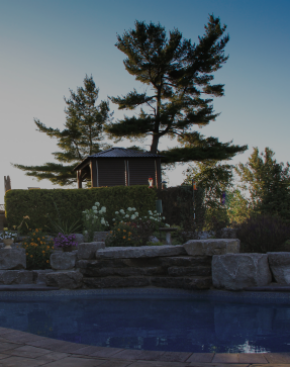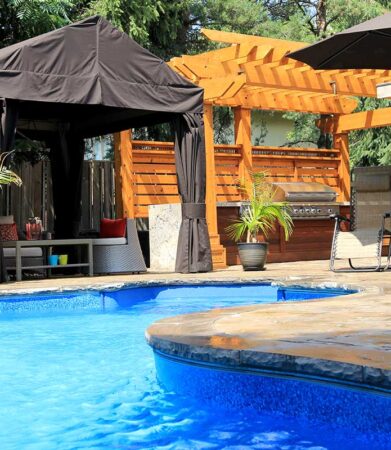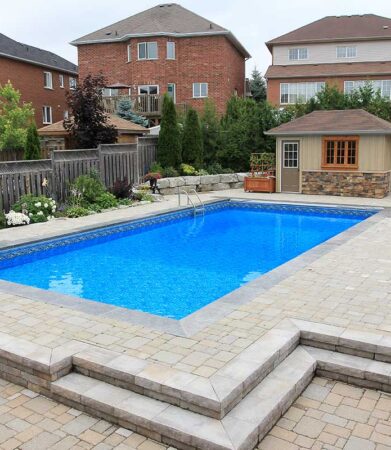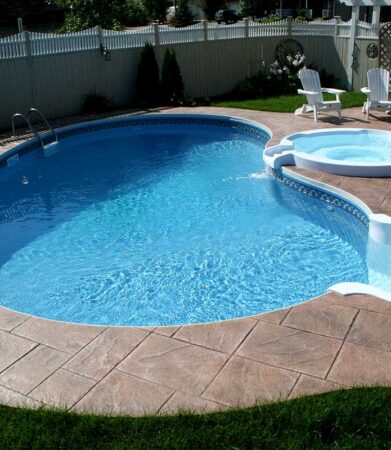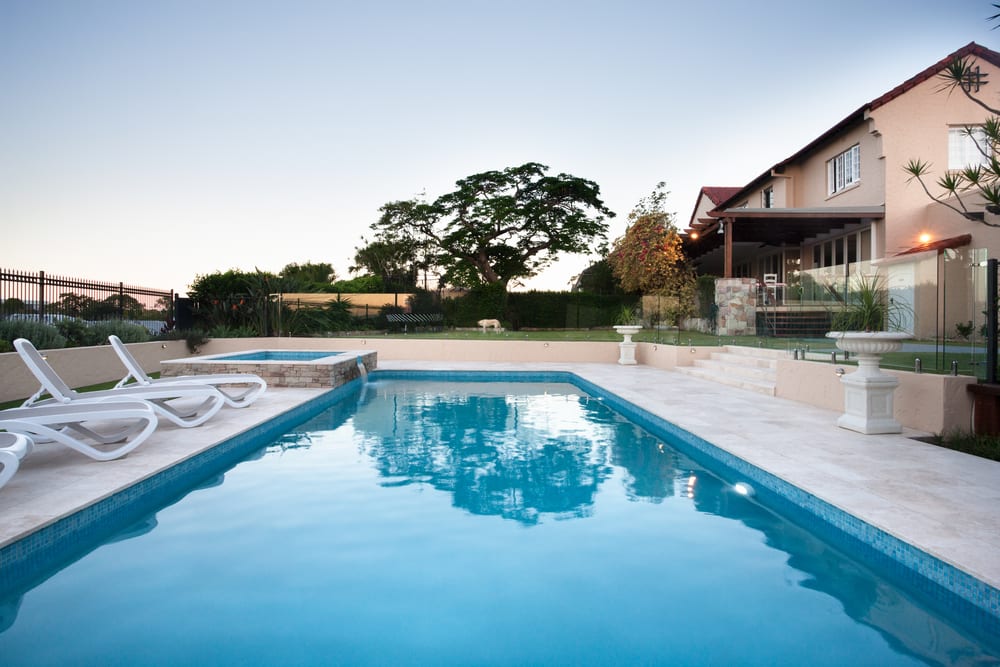
Even if you’ve managed to keep your pool open after Labour Day, getting ready to close the pool is probably on your mind. Especially for owners of new inground swimming pools, the question of how long you can leave a pool empty is a crucial one to answer correctly. If you don’t, you could cause serious, costly damage to your pool.
So let’s give you the correct answer right now:
You should never leave your inground pool empty!
Whether it’s for swimming pool maintenance, or while you’re away, you should not leave your pool empty. If that sounds surprising, it’s understandable. After all, it was empty before you first filled the pool. But that was most likely done by a professional pool installation company very soon after the pool was first built, and the pool was probably not left empty for any length of time.
Why You Should Not Leave Your Pool Empty
Hydrostatic pressure (pressure from stationary water in the ground). That’s the quick answer. Unless it is an older construction, your pool is probably built to withstand the pressures of the earth and soil around it, even when the pool is empty.
But water in that earth and soil can exert more pressure against the sides of your pool than it is designed to handle. That water can be groundwater, which exists in the spaces of the soils and rock under your yard. Groundwater can be especially present in areas of the Oak Ridges Moraine.
But rainwater can also put excessive pressure on the sides of your pool from the ground around it. While rain generally runs off along the surface of the soil, pool construction can loosen the soil, letting more water get beneath the surface, where it can exert hydrostatic pressure on the sides of your pool.
As long as your pool has enough water in it to counteract the water pressure that’s outside the pool, you don’t have a problem. But if you empty the pool, even concrete pools, you risk serious issues, including damaging the vinyl liner, cracking concrete sides, and the pool literally popping out of the ground.
Generally speaking, you shouldn’t drain your pool any lower than just below the skimmer line. This will let you do any cleaning and maintenance needed for the plumbing system, and drain it so you don’t get any damage from frozen water in the pipes.
To learn more about safely maintaining your pool, check out our post “How to Do Routine Vinyl Pool Maintenance”.

